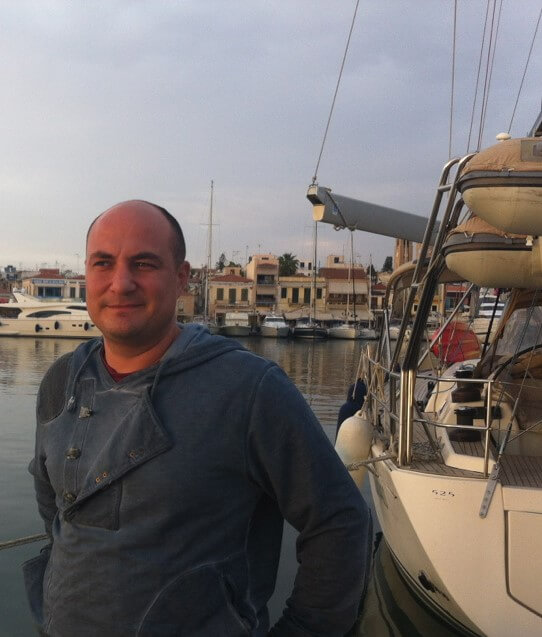We had the opportunity to speak with Aurélien Fayolle, Revenue Manager at Dream Yacht Worldwide. Discover his feedback on his daily experience with the revbell RMS.
Can you please introduce yourself?
I am Aurélien Fayolle, Revenue Manager at Dream Yacht Worldwide. Our company specializes in the rental of Bareboat sailboats without a crew, intended for individuals with sailing experience. Additionally, we offer options with a skipper and hostesses for those who are not familiar with navigation. Furthermore, we provide cabin rentals.
Our company was founded 20 years ago, starting with the first base in Seychelles. To date, we have 850 boats distributed across nearly 50 bases worldwide.
What challenges and objectives motivated you to invest in a system like revbell?
I have been working at Dream Yacht for about a decade, initially in charge of B2B sales. In 2019, our CEO made the decision to establish a dedicated Revenue Management department, and I took on that role.
Initially, my mission involved creating the entire process as we were still using catalog prices and annual brochures. Gradually, we evolved by adjusting our prices in a more dynamic manner while maintaining Yield Management strategies, with significant price variations between high and low seasons.
In the Yacht Charter sector, the norm is to publish rates once a year, with special offers for specific periods and destinations, but without real tariff adjustments throughout the year. This required an adaptation period for our clients.
Currently, one of our objectives is to increase profitability per boat, leading us to implement a more precise process. Since the Yacht Charter industry does not use RMS, we turned to the hotel industry for our research. We contacted several companies, including N&C with revbell, and decided to adopt this solution!
What were your selection criteria? How did the revbell RMS stand out?
After contacting N&C and engaging in multiple discussions, we met with Romain Charié and Florent Manotta during the nautical trade show in Paris in 2022. We quickly made the decision to sign. Although we looked at several systems, revbell seemed to be the most suitable due to its flexibility and the multi-sector expertise of NC. And it was recommended to us by several of our contacts!
How did revbell adapt to your sector, which is quite different from 'traditional' sectors?
The adaptation took a bit longer than we initially anticipated. In the Yacht Charter, we work with GDS, equivalent to PMS in hotels, but the way GDS operates is less modern than in the hotel industry, requiring adjustments on both sides.
A concrete example from revbell concerns a fundamental aspect of yacht charter: the year of construction of the boats, by age category, with annual modifications at Dream Yacht. It was a crucial criterion that needed to be added, requiring development work. In addition, we sell boats individually, unlike inventory by category in the hotel industry.
One last point to consider was that the boats move. So, if the demand is higher in a specific region, we can adjust our offering by moving the boats. For example, if we have 20 boats in Marseille and 20 in Toulon, and demand increases in Toulon, we can decide, if the marina capacity allows, to have 17 boats in Marseille and 23 in Toulon for the following season.
Today, all the necessary adaptations to these specific features have been made in revbell!
How did the learning phase, the onboarding process, go?
As with any new system, the early stages can be a little confusing, but once you’ve got the hang of it, I find revbell quite intuitive and logical. Moreover, we benefit from excellent support from NC, including your CMS Cannelle Galmiche!
What functionality of revbell do you consider as essential?
I find the mapping system very well designed, especially with the ability to group boats according to various criteria specific to each base, which is very valuable. With around 50 bases, flexibility at this level is essential because we do not have the same types of boats in each base.
Another aspect that seems important to me is that the system is based on artificial intelligence. The idea is that revbell gradually improves based on the data collected, the choices I approve or not, on the various suggestions proposed by the nancie AI.
Finally, the way alerts are presented is really practical. You can visualize seasonal patterns and sales curves while examining our schedule, making it easier to make decisions to adjust prices based on alerts.
How did revbell help you? Could you provide one or more concrete cases?
We did not implement revbell on all our bases immediately. We started with 7 pilot bases, varying in size but representing about 25% of our fleet. What I observe today, using alerts on these pilot bases since last summer, is that for departures in 2024, they have progressed more favorably compared to 2023 than the non-pilot bases.
In fact, revbell assists us in the decision-making process. Most of the time, I would have opted for the same choices, but thanks to revbell alerts, I take them much earlier. And the gained months can make a huge difference!
Our goal for next year is to increase per-boat revenue by 3%, and revbell is clearly a tool that should help us achieve this objective.
Do you have anything to add?
We are already thinking about future projects with N&C, in particular a tool that would enable us to optimize the purchase of our boats. Every year, we acquire new boats, and we have to decide on what basis to position them. The idea is that the tool should provide us with strategic information to make informed decisions on the best allocation of boats. By the way, this is something you have already implemented for camping companies.
Keywords: Aurélien Fayolle, Dream Yacht Charter, Dream Yacht Worldwide, Revenue Management, Revenue Management System, RMS.


